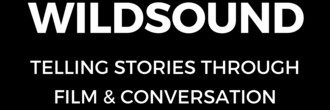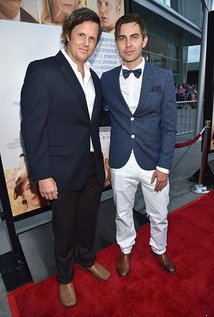 What a great time I had chatting with the extremely talented Newton Brothers (Andrew Grush & Taylor Stewart). A composing team that has already “scored” an impressive resume. I talked with them while they were in the midst of promoting their composing work on the horror film “Ouija: Origin of Evil.”
What a great time I had chatting with the extremely talented Newton Brothers (Andrew Grush & Taylor Stewart). A composing team that has already “scored” an impressive resume. I talked with them while they were in the midst of promoting their composing work on the horror film “Ouija: Origin of Evil.”
Matthew Toffolo: You guys are called the Newton Brothes but you’re not actually brothers.
Taylor Stewart: Yes, we wanted to write under one entity. Whether that is writing for film, TV, or an Opera. So we named ourselves after the great Isaac Newton.
MT: So not the bank robbers then?
Andrew Grush: We found out about them after we named ourselves..but we just decided to go with it.
Have any of you ever played with a Ouija board?
AG: That scared the crap out of me when I was a kid. I stayed away from all of that stuff. Only since we came aboard this project is when we have played with them. And we’ve now played with a ton of Ouija boards.
Do you believe?
TS: I personally think that people believe what they want to believe and things manifest. I do believe that there are things beyond us – and whether people want to believe that a Ouija board can bring that out is up to them to believe or not believe.
Did you play the board to inspire you to write the score?
AG: The sound designer was playing with the board in the post studio to grab folly off of it and it was laying around. So we did play with it.
We attended a few parties leading up to the premiere of the film and the played on different boards that some of the fans had. Some people had these amazing boards. Very old and artistic. I think I may be done with them. Don’t want to tempt faith.
I heard that you recorded the score of the film in an old church and that it got a bit creepy.
TS: Lucky enough we recorded it in only a day. It had a vintage feel. A traditional sense that others things have gone on there in the past. The owner of the church mentioned that “things” have gone on. So that brought another feeling. The church was beautiful and it definitely helped bring the emotions needed to execute the score.
With this score you went full out with your score – lots of intruments, with lots of layered emotions. Your rough cut. Then you scaled back and removed a lot of stuff. Is this your general process with scoring films?
AG: Yes that’s our usual approach. To take it too far just to see how far we can take it. Then go backwards and ween things out. We found that in the end that it worked out nicely. In the original score we had a lot of brass and ended up removing it entirely to have a more timeless feel. So it’s now more of a woodwind score. It now has the quality of the era of the film.
It’s almost like it was too busy with the brass.
AG: Exactly. To enhance the themes of the film and the amazing cinematography, less was definitely better.
Speaking of that. When I was researching you guys you were talking a lot about silence. To set up your score, you need silence first to enhance things.
TS: That’s true. There are so many movies with wall to wall music and usually when that happens it’s a student film or a young filmmaker’s film. They want to push the emotional buttons and many times they go too far. Silence gives more reality to the film. It’s a mistake that many student films make.
Sometimes the composer just wants their music in the film and they don’t think about the entire scope of the film. And sometimes to get the best overall score, a score isn’t needed in certain moments of the film.
AG: It’s very true. There are so many themes in so many films we do. We write music for all of it. Sometimes we work a week on a cue in a scene that just doesn’t work and no music is needed for that particular scene. But you have to try it. Explore the themes in the film. And doing that makes the rest of your score better.
It’s very important to know what we aren’t making an album. We don’t need to paint our sound all over the place.
What do you look for in your director?
TS: We welcome as much input as possible from the director. Getting to know what they want to relay what they want to give the audience. Whether that’s a two note score, or a very detailed score with many counter points. We want to work on the story with them and interject our talent onto the film.
The more that director gives us, the better it is for us.
How did you guys meet?
AG: We meet through a mutual friend in 2001. We started working together on songs and bank stuff. That turned into working on films. We decided to work on it together and came up with the Newton Brothers. Then we just started jumping into stuff.
It’s really nice to bounce ideas off each other. To work alone and go down out own natural roads. Then collaborate and bring those ideas and feelings together.
So you guys are basically a creative married couple?
AG: Yes we are. Good call.
What movie have to seen the most times in your life?
TS: E.T.. Star Wars. Back to the Future. Predator.
AG: The film I watched the most is Aliens. I recorded it on VHS in 8th grade, and I would watch it over and over again.
What type of movie would you want to score that you haven’t scored yet?
TS: Sometime futuristic and electronic. Or a period epic movie like Braveheart. We write a lot of stuff like that and I guess people will hear it eventually.
AG: Same. That is our goal.


Reblogged this on WILDsound Writing and Film Festival Review.
LikeLike
Reblogged this on WILDsound Writing and Film Festival Review.
LikeLike
Reblogged this on WILDsound Writing and Film Festival Review.
LikeLike